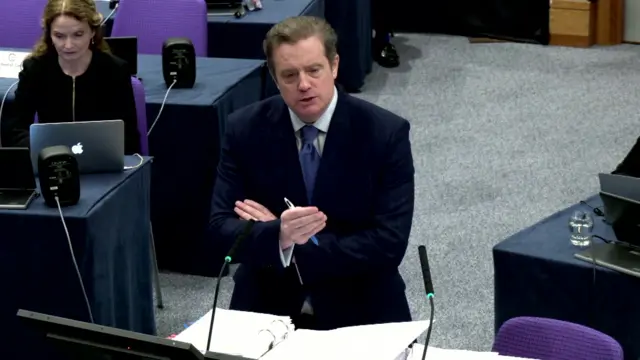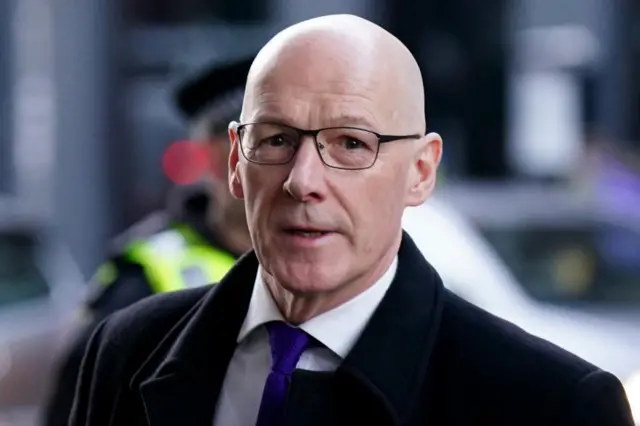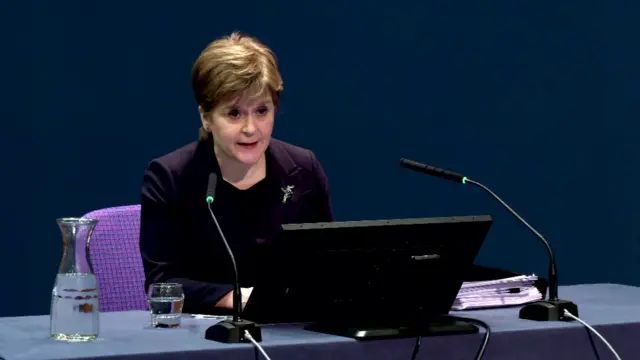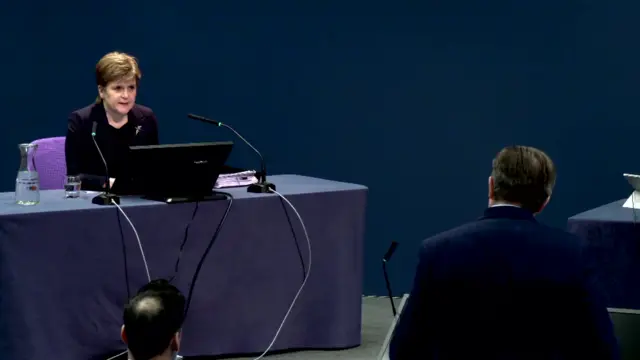Inquiry shown informal messages which reveal decision-making processpublished at 11:07 GMT 31 January 2024
The inquiry is now shown messages between Sturgeon and Liz Lloyd, who served as chief of staff and a strategic adviser to Sturgeon, in which they discuss pub and restaurant restrictions.
In the messages, they they talk about what time pubs should be told to stop serving alcohol and how many people could go out in a group.
Dawson suggests this message would be "relevant" to someone who wants to know how decisions were made.
Sturgeon says she thinks everything in these messages would also be recorded in the official evidence of government decision-making.
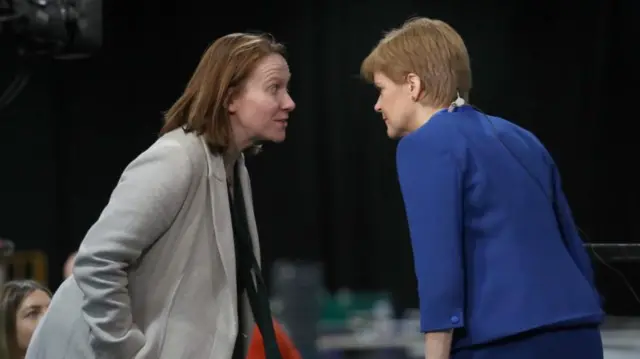 Image source, PA Media
Image source, PA MediaLiz Lloyd, then-chief of staff, and Nicola Sturgeon in 2019


